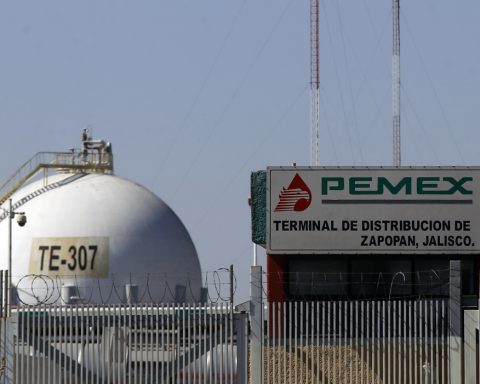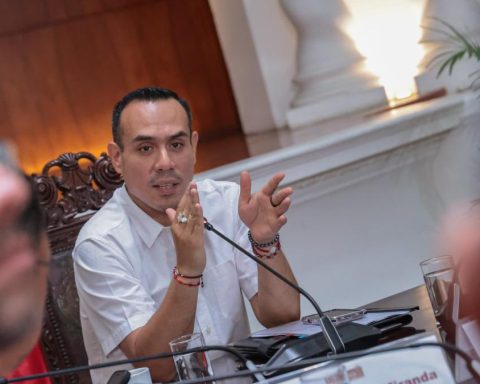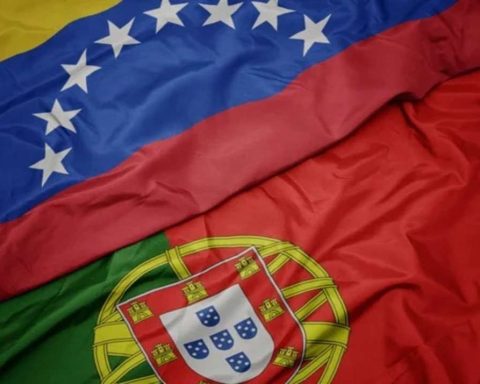Daniel Ortega’s warning that “it will be necessary to review” the tax regime for telecommunications companies that “have benefited from privatization” threatens large foreign capital that has invested in Nicaragua, such as the multinationals América Móvil and Millicom and , owners of the Claro and Tigo brands, respectively, which have invested hundreds of millions of dollars to provide Internet connection and cellular telephony in all the country’s municipalities.
América Móvil is owned by Mexican billionaire Carlos Slim. Millicom, which is headquartered in Luxembourg and has a corporate office in Florida, originated from the merger of mainly Swedish and US capital, and recently bought the Central American operations of the Spanish company Telefónica, owner of the Movistar brand.
It is estimated that this industry will generate revenues of USD 667.1 million this year. There are around six million mobile lines in the country, a segment in which Claro has around 55% participation and Tigo has almost everything else. 100% of the municipalities have cellular coverage (and therefore, mobile Internet access), which covers 85% of the population. 45% of the municipalities have LTE technology.
On November 8, when participating in a congress of the Sandinista Youth, an act that aused to try to justify the commission of a new electoral fraudOrtega said that telecommunications companies make “good profits,” but that the tax payments they make “were not fair” compared to the economic benefits they obtain.
In addition to Claro and Tigo, there are Nicaraguan capitals and those from other countries that operate small and medium-sized companies such as Ideay, IBW, Metronet, Yota, Cablenet, Ufinet, ALFA, Casavisión, SBA, Alliance and Torrecom, which make up the Nicaraguan Chamber of Telecommunications ( Canitel).
Although the sector is key to economic development, these attacks degrade the image of the country as a place to attract foreign investment.
As head of the Executive Power, Ortega has had the possibility of modifying the tax regime that covers telecommunications companies, but it is only until now, in his sixteenth consecutive year in office, after the ‘Dialogue and Consensus Model‘ with the private sector, which uses these arguments.
The regime’s interest in controlling telecommunications companies has been linked to its economic alliances with Russian and Chinese business groups. Journalistic investigations point to him as one from Yota owners, a Russian capital and technology company that offers Internet access, as well as Xinwei, owned by Wang Jing, which never managed to establish itself in the market, despite all the government support it received.
“This is not from now. As of 2018 began a tax ‘hunt’, trying to get more money from the companies that provide telecommunications services. even when Tigo bought Telefónicathe people from the Government looked for a way to raise the taxes they wanted to charge for that transaction,” he told CONFIDENTIALrequesting anonymity, a professional who provides services to a company in the sector.
The source warned that “a good part of any new tax that is imposed on these companies will ultimately be paid by consumers,” warning that a possible effect of an increase in the tax burden of these companies is that they transfer it –in whole or in part– to its clients, and that they react by reducing their consumption.
“If that happens, it could end up affecting the employment of the direct workers of these companies, as well as the jobs generated by their suppliers,” he warned.
Photo: Confidential | Taken from 19 Digital.
The old attempt to control them
According to the Monthly Index of Economic Activity (IMAE) of last August, prepared by the Central Bank of Nicaragua, the sector had a growth of 10.6% in communications services, compared to August 2021.
Among Ortega’s attempts to control the sector, It is recalled that, on March 20, 2013, the Institute of Telecommunications and Post Office (Telcor), issued the administrative agreement 005 – 2013, in which it ordered the companies in the sector, “to submit to the approval of this Regulatory Authority the appointment of its directors and/or general managers, directors and/or managers or heads of information technology or systems, and directors and/or managers or heads of security”.
Even when it was the time of co-government between Ortega and the country’s businessmen, the Superior Council of Private Enterprise (Cosep) had to file a dozen appeals for administrative review, and use its ability to negotiate with the president, to make The government gave up on that idea.
Two years later, in April 2015, the companies affiliated with the Chamber learned about the preliminary draft of the ‘Law for the Promotion and Development of the National Network of Broadband Telecommunications Services’, which they rejected for considering it “counterproductive”, feeling that “disincentivizes private investment”, and “creates a distortion in the market and unfair competition”, a project that was ‘dormant’.
Then, in January 2017, the Costa Rican Institute of Electricity (ICE) and the Nicaraguan Electricity Transmission Company (Enatrel), formed a private company, which alarmed the companies in the sector, who saw in this joint initiative a new form of unfair competition, considering that it is always possible that the regulatory bodies of both countries –or the governments themselves– favor ‘your’ company.
The company has an active website, in which it offers corporate, business and residential services, among which it is worth noting that they have a national presence, and offer digital television, Internet, and closed circuit television cameras, for security.
More recently, in May 2020, Canitel reported that “Telcor’s Administrative Agreement 004-2020 is a partial reform of Administrative Agreement 006-2013, issued by the regulatory entity and in force since April 2013. This Agreement provides for the obligation to notify Telcor about the appointment of management positions” .

















